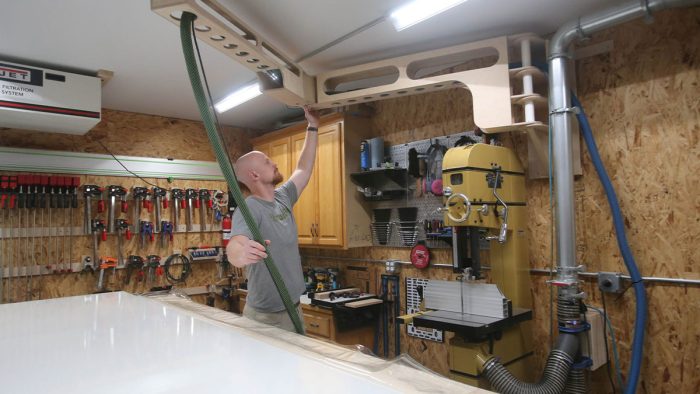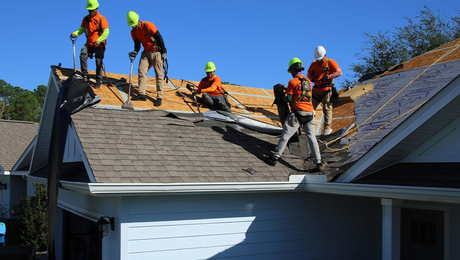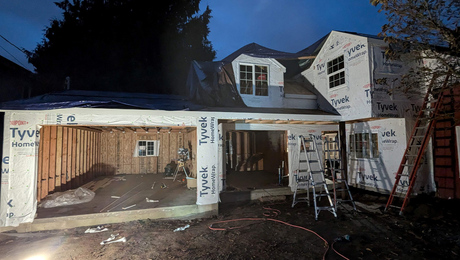Podcast Episode 651: Pretty Good Houses, Replacing Innie Windows, and Talking Shops
The crew talks about Ian’s Pretty Good House, installing inset windows, and the virtues of a home workshop.

The Podcast question of the week comes from Chris, who asks about the best way to install inset windows so they’re easy to replace when the time comes. We also hear from Superspeeder on YouTube, who wants more details on Ian’s Pretty Good House. Finally, the crew talks about home shops and an upcoming FHB feature showing Casey Knips’s amazing home shop.
 |
Note: The Fine Homebuilding Podcast team is always looking for ways to improve, so we’re switching up our video strategy. But don’t worry—you’ll still be able to watch all your favorite clips from the show. Check out our YouTube channel or keep scrolling to see more!
Check in:
Ian: Add-A-Level project
Brian: Shed organizing
Andres: Outdoor-kitchen freeze protection
Patrick: Yellow jacket nest
BS and Beer Symposium Chicago: https://bsandbeerkc.org/chicago-2024
Listener Feedback 1:
Superspeeder from YouTube writes:
I just listened to the podcast. Regarding the Pretty Good House discussion, you gave us the energy information but didn’t share anything about the house construction, size, Btu/sq. ft.? The windows were discussed, but only superficially…what coatings do they have, and what was the actual cost vs. savings of the triple-pane option? Nerds need to know!
RELATED STORIES
Question 1: How should I install a flanged innie window, and how complicated is it to replace it down the road?
Chris from southwest Wisconsin writes:
On our 120-year-old farmhouse, we are doing a complete tear-off of existing siding and windows; replacement of moisture-damaged sheathing/framing; and install of new housewrap, foam-board insulation, furring strips, lap siding (LP SmartSide), and windows. We are working with some local carpenters, but we are responsible for the overall design.
We are planning innie windows, with housewrap just outside the sheathing integrated with flanged vinyl windows and then foam board, furring strips, and siding. We chose innie windows partly for aesthetic reasons, partly to reduce window condensation inside, and partly for logistical reasons: the housewrap layer just outside the sheathing would allow us to quickly cover and rainproof a wall after removing the old siding. (We have blown-in cellulose in our stud bays, and we are concerned about an unexpected rain wetting that insulation when the wall is bared to the sheathing after siding tear-off.)
We have studied a lot of information about window detailing, furring strips, etc., but one question that remains for me is how the innie windows could feasibly be replaced in the future. It seems very likely that the windows would need replacement before the other components in this assembly (siding, housewrap, insulation). Am I right that a good, weatherproof window replacement would require digging through the siding and foam board? Is this a strong reason in favor of outie windows, where only the siding and furring strips right around the window would need to be removed?
I am a farmer by trade, not a builder, but my work experience with coolers, irrigation systems, and farm buildings is that everything needs to be replaced eventually. We would like to make things easy and inexpensive for us, our kids, or whoever else is living here. Thanks for the input!
Chris
RELATED STORIES
Question 2: Brian recently visited Casey Knips’ shop in Minneapolis for a Fine Homebuilding feature. We ask him why he went there and what he learned. How are we going to share this with the FHB audience?
 |
 |
RELATED STORIES
Sign up for a Fine Homebuilding All-Access Membership
Unfortunately that is all the time we have for today. Thanks to Ian, Brian, and Andres for joining me, and thanks to all of you for listening. Remember to send us your questions and suggestions to [email protected], and please like, comment, or review us no matter how you’re listening–it helps other folks find our podcast.
Happy Building!
Fine Homebuilding Recommended Products
Fine Homebuilding receives a commission for items purchased through links on this site, including Amazon Associates and other affiliate advertising programs.

Affordable IR Camera

8067 All-Weather Flashing Tape

Reliable Crimp Connectors





















